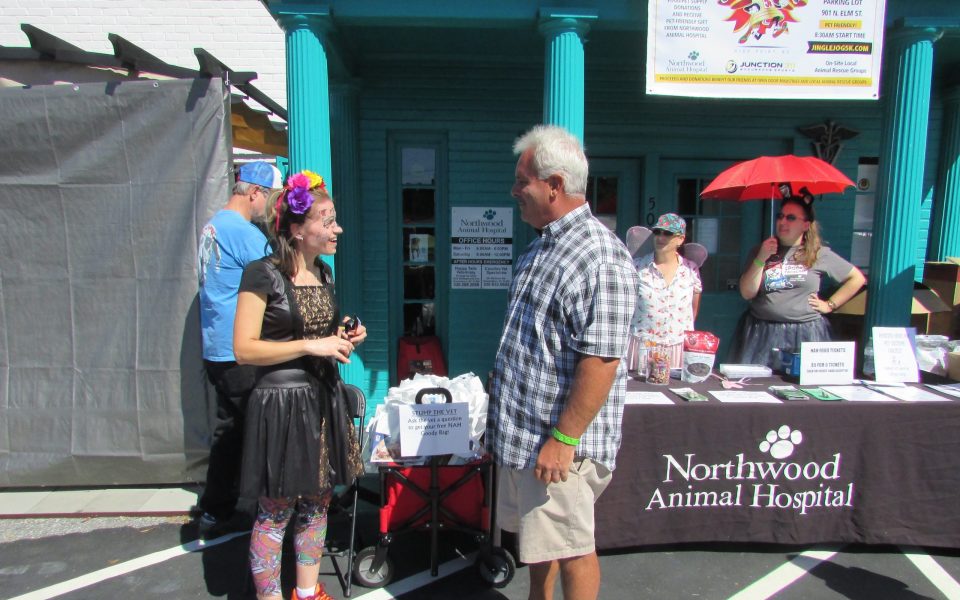Two Republican candidates representing distinct visions for the city who are locked in a tightly contested mayoral race have attracted major financial backing from different business interests.
 Jim Davis, a builder with strong support among conservative voters in the city’s rapidly growing northern tier, is receiving an assist from a $20,000 advertising splurge by the NC Association of Realtors. The independent expenditure includes $15,000 for a glossy mail piece, and $5,000 in Facebook ads set to launch on Friday.
Jim Davis, a builder with strong support among conservative voters in the city’s rapidly growing northern tier, is receiving an assist from a $20,000 advertising splurge by the NC Association of Realtors. The independent expenditure includes $15,000 for a glossy mail piece, and $5,000 in Facebook ads set to launch on Friday.
Meanwhile, the High Point Political Alliance, the political arm of the High Point Chamber of Commerce, recently endorsed Jay Wagner, a lawyer who has vocally supported a proposed downtown stadium as a member of city council. Wagner lives in Emerywood, the city’s old-money enclave, and works at a law office in the Uptowne commercial district. During his two terms on council, he has promoted downtown reinvestment.
Jim Davis and Jay Wagner are both registered Republicans, while Bruce Davis, a third candidate, is a registered Democrat. The two candidates who receive the largest number of votes — regardless of party — in the Oct. 10 primary will advance to the general election.
High Point Political Alliance, a registered political action committee, reported raising a total of $43,500 from June 18 through June 28. The funds were reported to the state Board of Elections in an independent expenditures report, suggesting that the committee plans to spend them to support Wagner and other candidates who receive the group’s endorsement. (In the at-large race, the committee endorsed Britt Moore, who previously served on city council, and Don Scarborough, a retired senior vice president at High Point University.)
The High Point Political Alliance adopted a platform in August that promotes downtown economic growth through support for the stadium project, increasing the city’s “appeal to incubators, maker spaces, entrepreneurs and millennials,” and blight removal, while also supporting joint investment along Montlieu Avenue and Centennial Street to benefit High Point University.
The committee’s contributors include a number of players with a vested interest in the stadium, early boosters and other major business figures in High Point. The committee received a total of $10,000 from LLCs controlled by David F. Couch and Christopher T. Dunbar, respectively the CEO and chief operating officer of the Blue Ridge Companies. Led by High Point University President Nido Qubein, stadium boosters announced in early September that Blue Ridge Companies will build 200 apartments near the proposed stadium.
Members of the Congdon family, who own Thomasville-based Old Dominion Freight Line, contributed a total of $9,000.
Brian Gavigan, the president of the committee and an attorney at the Wyatt Early Harris Wheeler law firm, contributed $5,000. Doyle Early Jr., a lawyer at the same firm, donated $500. Early is also the chairman of Forward High Point, the downtown development entity that has coordinated planning for the stadium.
Greg York, vice president of Vann York Toyota, and his wife Caren, contributed $5,000. Robert Culp, chairman of the board of the global textile firm Culp Inc., and his wife, Susan, also contributed $5,000.
Marketplace Management Inc., a property management company owned by Maurice Hull and Coy O. Williard, contributed $5,000.
Jack Hendrix, a CPA who serves as the committee’s treasurer, contributed $3,000, as did Patrick Chapin, the president of the High Point Chamber of Commerce, and Scott Tilley, a wealth management advisor who serves as chairman of Business High Point. Ned Covington, president of Harriss & Covington Hosiery Mills, chipped in $500.
Look for more comprehensive coverage of the High Point mayoral race in Thursday’s issue of Triad City Beat.
Join the First Amendment Society, a membership that goes directly to funding TCB‘s newsroom.
We believe that reporting can save the world.
The TCB First Amendment Society recognizes the vital role of a free, unfettered press with a bundling of local experiences designed to build community, and unique engagements with our newsroom that will help you understand, and shape, local journalism’s critical role in uplifting the people in our cities.
All revenue goes directly into the newsroom as reporters’ salaries and freelance commissions.


Leave a Reply